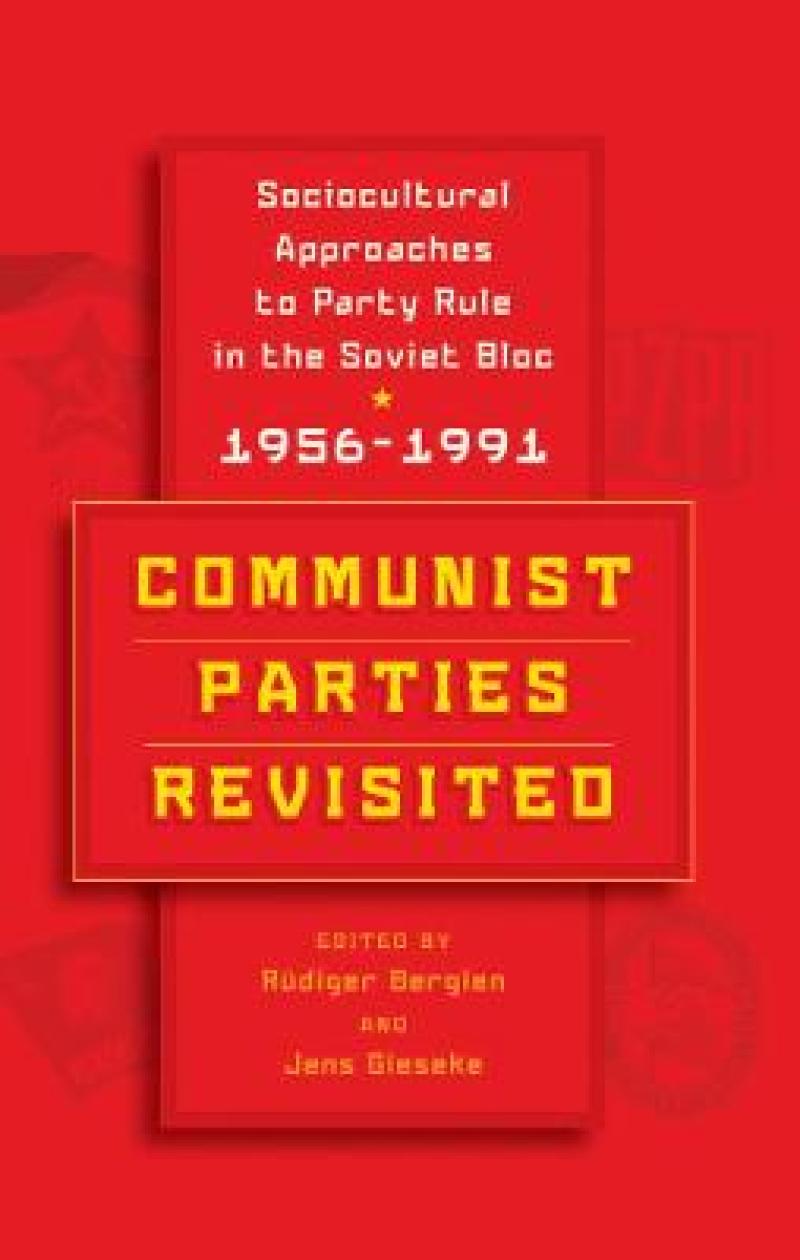<p>
<em>“This collection will be a valuable resource for scholars interested in the inner workings and sociocultural dimensions of the communist parties of the Soviet Union, East Germany, Poland, and Czechoslovakia in the post-Stalinist decades… By demonstrating how the ruling communist parties operated as active, multifunctional organizations, this volume advances understanding of the history of East European communism and, more broadly, the history of Europe during the Cold War.”</em> <strong>• Choice</strong></p>
<p>
<em>“This is a valuable, informative, and timely book…[that] is a distinct contribution to our knowledge and understanding of the post Second World War ruling communist parties and of state socialism in Europe…It is an essential book for specialists.”</em> <strong>• Eurasian Geography & Economics</strong></p>
<p>
<em>“…a highly important volume for anyone attempting to better understand the diversity characterizing the political arena of the Soviet bloc and offers a myriad of arguments against the essentialist claims about systemic as well as individual agency in late socialism.”</em> <strong>• European Review of History</strong></p>
<p>
<em>“The volume is designed as a pathbreaking study taking the discussion of communist ruling parties beyond their political functions and treating them as social and cultural communities. The bottom-up perspective, with the focus on medium- and lower-level functionaries, is also very welcome.”</em> <strong>• Ab Imperio</strong></p>
<p>
<em>“This volume is in several respects a useful contribution to the analysis of East European state socialism, especially of its social and cultural history. State socialism as both a specific society and power structure is gone, but its legacy remains lively in the present ‘new Europe.’”</em> <strong>• Journal of Contemporary Central & Eastern Europe</strong></p>
<p>
<em>“…timely, detailed and authoritative…an impressive, thought-provoking and innovative anthology that should become compulsory reading for specialists and higher-level students alike.”</em> <strong>• European History Quarterly</strong></p>
<p>
<em>“</em>Communist Parties Revisited<em> is an outstanding volume that brings together path-breaking research in an important field. Its analysis of shifting social structures, discursive change, and internal dissent within Eastern Bloc communist parties is fascinating and genuinely novel.”</em> <strong>• Dolores Augustine</strong>, St. John’s University</p>
<p>
<em>“These essays are well-written, accessible, and grounded in careful scholarship. They offer a new and important comparative perspective on communist rule after Stalin.”</em> <strong>• Lisa Kirschenbaum</strong>, West Chester University</p>
The ruling communist parties of the postwar Soviet Bloc possessed nearly unprecedented power to shape every level of society; perhaps in part because of this, they have been routinely depicted as monolithic, austere, and even opaque institutions. Communist Parties Revisited takes a markedly different approach, investigating everyday life within basic organizations to illuminate the inner workings of Eastern Bloc parties. Ranging across national and transnational contexts, the contributions assembled here reconstruct the rituals of party meetings, functionaries’ informal practices, intra-party power struggles, and the social production of ideology to give a detailed account of state socialist policymaking on a micro-historical scale.
List of Illustrations
Acknowledgements
Abbreviations
Introduction: Communist Parties Revisited: Sociocultural Approaches to Party Rule in the Soviet Bloc, 1956-1991
Rüdiger Bergien and Jens Gieseke
Chapter 1. The Paradox of Party Discipline in the Khrushchev-Era Communist Party
Edward Cohn
Chapter 2. "It Is Not possible to Allow Past Mistakes to Come Again." Recruitment Policy in the CPCS in the 1970s and 1980s
Michel Christian
Chapter 3. Behind Closed Doors: The Erosion of SED Party Life in the 1980s
Sabine Pannen
Chapter 4. The Successive Dissolution of the “Uncivil Society.” Tracking SED Party Members in Opinion Polls and Secret Police Reports, 1969–1989
Jens Gieseke
Chapter 5. On the Way to Party Pluralism? The PZPR and the Reform of the Socialist Party System in 1988–1989
Frédéric Zalewski
Chapter 6. Communist Party Apparatuses as Steering Organizations: Paths of Development in East Central Europe
Christoph Boyer
Chapter 7. The Central Committee Department of Party Organs under Khrushchev
Alexander Titov
Chapter 8. True Believers Becoming Funded Experts? Personnel Profile and Political Power in the SED Central Committee’s Sectoral Apparatus, 1946–1989
Rüdiger Bergien
Chapter 9. Paternalism in Local Practice: The Logic of Repression, Ideological Hegemony and the Everyday Management of Society in an SED Local Secretariat
Andrea Bahr
Chapter 10. The SED Bezirk Secretaries as Brokers of Territorial Interests in the GDR
Jay Rowell
Chapter 11. The Idea of Social Unity and Its Influence on the Mechanisms of a Totalitarian Regime in the Years 1956–1980
Krzysztof Dąbek
Chapter 12. Foreign Policymaking and Party-State Relations in the Soviet Union during the Brezhnev Era
Mark Kramer
Chapter 13. Erich Honecker - The “Leading Representative.” A Generational Perspective
Martin Sabrow
Chapter 14. Inside the System The CPSU Central Committee, Mikhail Gorbachev’s Komanda, and the End of Communist Rule in Russia.
Jan C. Behrends
Chapter 15. The Ironies of Membership: The Ruling Communist Party in Comparative Perspective
Padraic Kenney
Index
